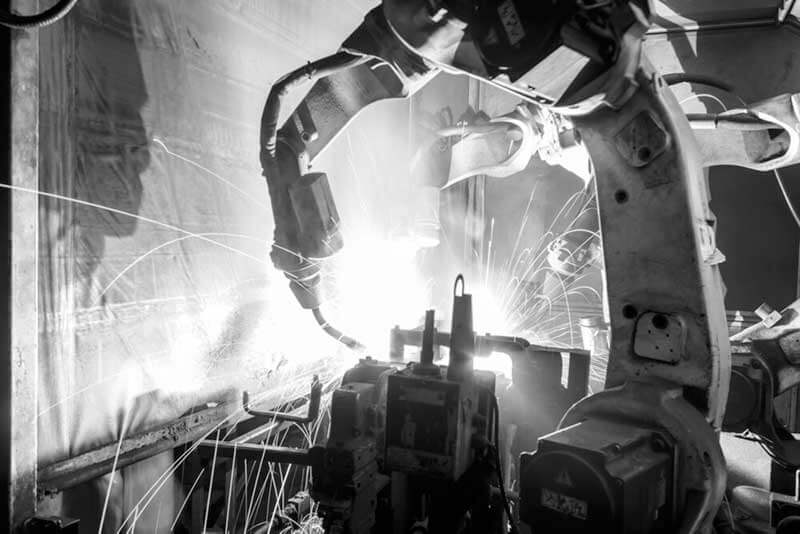- Which industries will see jobs disappear?
- Opportunities for the less skilled and the importance of general skills
- Which are the jobs of the future and have they already been invented?
- The existing models education models need a rethink
- We are heading into a future of challenges as well as opportunities
The exponential advances in technology will see many jobs disappear in the future. Not only unskilled workers but also many mid-level employees will soon be out of work. The future of manufacturing, healthcare and even the financial sector looks completely different from what we have become used to. But there is good news as well, because this future will also create many new and exciting career opportunities. What’s more – a large number of jobs have yet to be invented. However, in order to prepare our new generation we’ll have to make major changes in education.
Which industries will see jobs disappear?
There are a few sectors in which many jobs will disappear in the future. Jobs that consist of simple repeat work such as assembly line workers and jobs in health care, will soon be faced with major changes. The prediction is that in the future, about 22% of the less educated between 18 and 35 years in Europe will not be able to keep up with the change in our new economy.
Computers and algorithms in healthcare
In health care, a large number of tasks will be taken over by automation. For example, diagnoses generated by computers are much more accurate. An example is IBM’s supercomputer Watson. Surgery will also look entirely different in the future and human surgeons will be largely replaced by robots. In nursing homes, many tasks will be taken over by robots as well. Research and pilots have indicated that residents in nursing homes actually preferred to be cared for by a robot, rather than a by a human caretaker.
Robotics in manufacturing
Computers and robotics will cause tremendous improvement in efficiency. Jobs where routine work takes centre stage such as assembly line work will soon be filled by robots, also causing an increase in production speed and quality. People will however continue to play important roles in product design, instructing robots and managing production processes.
Automation in the transport industry
Self-driving cars are already a reality. As soon as the technology is refined further – within five to ten years – taxi and truck drivers will become redundant. All of these cars will autonomously transport goods and people. Truck drivers and postmen will also face losing their jobs. Less and less communication is sent via actual post, because everything is done digitally. In the future, parcels will be delivered by self-driving car or drone.
Opportunities for the less skilled and the importance of general skills
Fortunately there are enough human skills which are difficult to replace with technology. Also, each situation of abundance creates other shortages and where ever jobs are lost, new jobs and new possibilities appear. This also means new opportunities for the less educated. They will however have to focus on improving their general skills or acquire new ones. Skills such as problem solving, initiative, clear communication, creativity, social skills, critical thinking – things that distinguish us as human beings from robots and are difficult to replace with technology. These skills are also called 21st century skills: skills that enable people to contribute to the modern knowledge economy. Important social skills can be seen in occupations in health care, but also the barber, beautician, soccer coach and bartender must have these skills.
Which are the jobs of the future and have they already been invented?
It’s clear that software engineers, process designers, ergonomists and neuroscientists have excellent career prospects. But half of the jobs in the future are still unknown to us. If we speculate a little bit, we could imagine that jobs such as battery engineer, space or data architect, tele-surgeon, robot consultant, drone specialist and ethical hacker are no longer science fiction. The possibilities are endless. Some examples:
Opportunities in cybersecurity – the ethical hacker
The percentage of cybersecurity risks has increased exponentially and in the future we’ll need many cybersecurity specialists. CEH’s or certified ethical hackers can penetrate computer systems in order to locate weaknesses in security systems and to develop network policies. We can already see hackers entering our systems via devices like smart lighting and smart thermostat systems. Ethical hackers will have lots of employment opportunities in the future.
Careers in 3D printing – 3D designer
With the exponential advances in 3D printing technology, we see great opportunities for 3D designers in the future. They’ll design products such as clothing, accessories, art and utensils in materials, colours and sizes chosen by the customer, and sell these products online. 3D designers can start their own businesses or find employment at various companies or government institutions. 3D printing technology can also offer artists endless possibilities. The production costs of art will soon be much lower than they are now and the artists’ work can be shared with a much wider audience.
Jobs in drone technology – drone driver
Drones are already used in police departments as well as in the military and intelligence services. We also see them more and more frequently in the agricultural sector and in construction. These industries offer lots of job opportunities in the future. Drones will have to be designed, built, programmed, repaired and operated.
Work in the sustainability community – repairer: an old and new profession
The profession of repairman has existed for as long as we can remember, think cobblers and auto mechanics. Because society is increasingly focused on sustainability, this profession will become more and more important (again) in the future and the repairer will soon see a significant comeback. Armed with the emerging 3D printing technology, he can print the correct parts and with his knowledge, he can assemble the parts in the faulty unit or product.
The existing education models need a rethink
Education could do with a thorough rethink. It will need to develop entirely new competencies and focus on basic education – the beginning of the new generation. It should not be focused on knowledge or disciplined work according to existing models. Instead, it should teach young people 21st-century skills: collaboration, solution-oriented thinking, dare to take risks and taking initiative. With this approach, within fifteen years we’ll have people who are able to solve problems and create things of which we currently have no knowledge. We need a new generation that knows how to say no constructively and creatively goes against the grain. These people will be flexible and able to adapt to the exponential changes that will cause even greater rapids in the future.
We are heading into a future of challenges as well as opportunities
To take advantage of the latest technological developments, we must abandon existing assumptions about work and income. We will have to open up new opportunities and actively prepare for this new future. Our level of success will depend on how we combine our creativity with the power, speed and intransigence of robots and computers. We must prepare for lifelong learning. Without this mindset, we will not be able to keep up with the changes and, as a result, be unable to participate in the new economy.
Share via:



